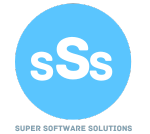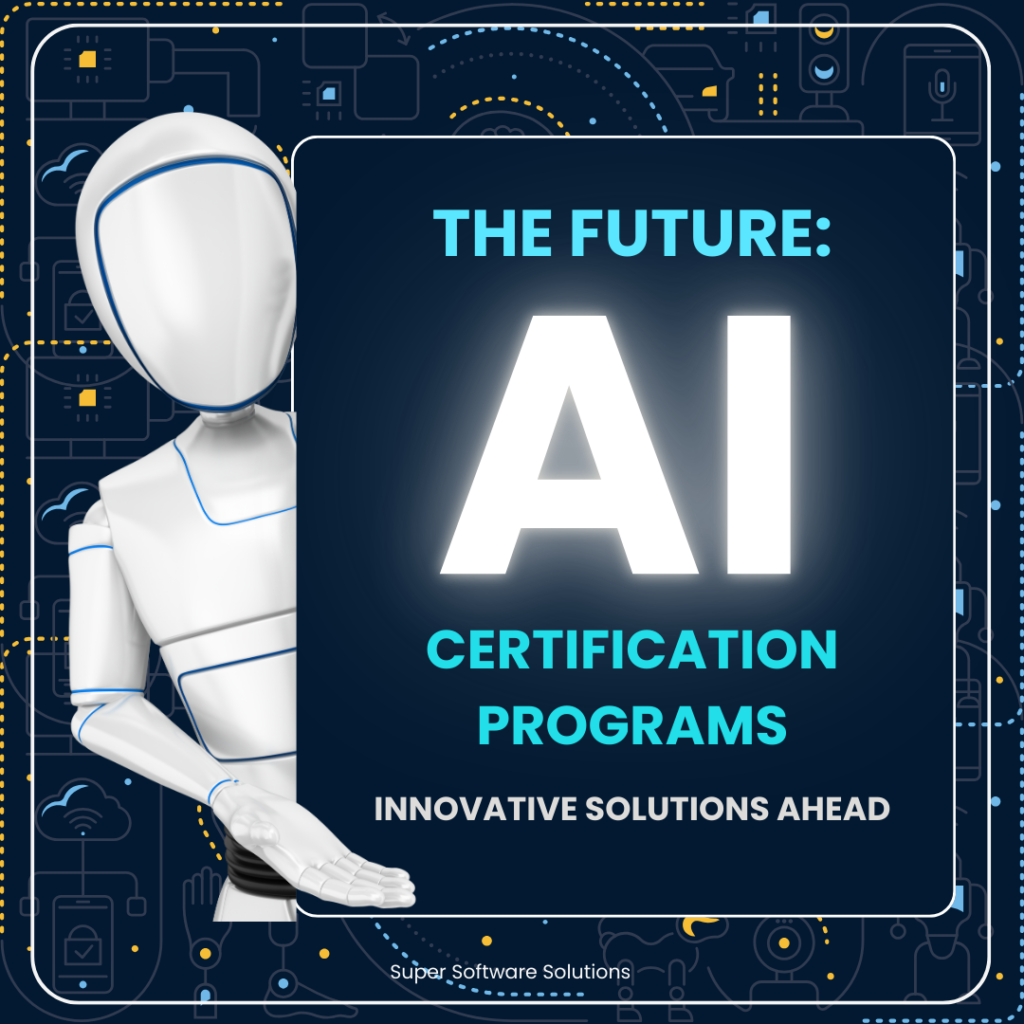AI Employment:
Charting Your Course in a Revolutionized Job Market
The world of Artificial Intelligence (AI) is not just a futuristic concept anymore; it’s a present-day reality reshaping industries and, crucially, the landscape of AI employment. From sophisticated AI algorithms powering our daily apps to complex systems driving business decisions, AI’s pervasive influence is creating an unprecedented demand for skilled professionals. If you’re intrigued by the prospect of a career in this dynamic field, whether you’re eyeing AI consulting jobs, seeking AI jobs entry level positions, or aspiring to AI training jobs, this comprehensive guide will illuminate your path.
The AI revolution is in full swing, and its impact on employment is profound. According to the World Economic Forum, while some jobs may be displaced, an even greater number of new roles are emerging – a net positive that underscores the immense opportunities in AI employment. This isn’t just about a handful of tech-savvy individuals; it’s about a widespread transformation creating diverse roles across various sectors. This post will delve deep into the exciting avenues of AI employment, exploring the nuances of AI consulting jobs, pathways into AI jobs entry level, and the crucial role of AI training jobs.
Table of Contents
The Expanding Universe of AI Employment
The AI job market is experiencing explosive growth, and this isn’t a fleeting trend. As businesses across sectors, from healthcare and finance to retail and manufacturing, increasingly adopt AI technologies to enhance efficiency, innovate, and gain a competitive edge, the demand for professionals who can develop, implement, manage, and explain AI is skyrocketing.
Why the Boom in AI Careers?
- Data Deluge: The sheer volume of data being generated daily is a goldmine for AI. Professionals are needed to build systems that can process, analyze, and derive meaningful insights from this data.
- Advancements in Machine Learning (ML) and Deep Learning (DL): Breakthroughs in ML and DL algorithms have made AI more powerful and applicable to a wider range of complex problems.
- Increased Accessibility of AI Tools: Cloud platforms and open-source libraries have democratized access to AI development tools, enabling more organizations to experiment with and deploy AI solutions.
- Business Transformation: Companies recognize AI not just as a technological upgrade but as a fundamental driver of business strategy and transformation, leading to significant investment in AI employment.
- Emergence of New AI Applications: From generative AI creating content to AI in drug discovery, new applications are constantly emerging, fueling the need for specialized talent.
A compelling statistic from LinkedIn highlights this surge: AI specialist roles have seen annual growth of 74% in recent years. Furthermore, by 2025, the demand for AI-related jobs is projected to increase by a staggering 300% from 2020 levels. This isn’t just about quantity; it’s about quality too, with many AI roles commanding significantly higher salaries due to the specialized skills required.

Decoding AI Job Categories: Consulting, Entry-Level, and Training
The umbrella of AI employment covers a wide spectrum of roles. Let’s break down three key areas: AI consulting jobs, AI jobs entry level, and AI training jobs.
AI Consulting Jobs: Guiding Businesses into the Future of AI Employment
AI consultants are the strategic advisors who help organizations navigate the complexities of AI adoption. They bridge the gap between technical AI capabilities and business objectives.
What Do AI Consultants Do?
- Strategy Development: They work with clients to understand their business challenges and identify opportunities where AI can add value, developing tailored AI strategies and roadmaps.
- Solution Design: AI consultants design AI solutions, selecting the right technologies and tools that align with the client’s strategic goals and existing infrastructure.
- Implementation Oversight: While they might not always do the hands-on coding, they often manage and oversee AI project implementation, ensuring projects are delivered on time and within budget.
- Change Management: A crucial aspect of AI consulting jobs involves helping organizations manage the cultural and operational changes that come with AI integration.
- Risk and Ethics Advisory: They advise on the ethical implications, biases, and regulatory compliance related to AI systems.
- Measuring Success: AI consultants help define key performance indicators (KPIs) to measure the impact and ROI of AI initiatives.
Skills Needed for AI Consulting Jobs:
- Deep understanding of AI, machine learning, data science, and analytics.
- Strong business acumen and industry-specific knowledge.
- Excellent problem-solving and analytical skills.
- Exceptional communication and presentation skills to explain complex AI concepts to non-technical stakeholders.
- Project management and leadership abilities.
- Familiarity with AI ethics and governance.
Typical Projects & Earning Potential: Projects can range from developing AI-powered customer service chatbots and predictive maintenance systems for manufacturing to implementing AI for fraud detection in financial services or personalized medicine in healthcare. The earning potential in AI consulting jobs is substantial, reflecting the high-value strategic input they provide. While salaries vary by location and experience, senior AI consultants can command top-tier compensation. For instance, in India, average salaries for AI consultants can range significantly, often upwards of ₹27.8 lakhs annually, with experienced professionals earning much more.
AI Jobs Entry Level: Your Gateway to a Thriving AI Career
For those starting, AI jobs entry level positions offer a fantastic launchpad into the world of AI employment. These roles provide foundational experience and opportunities to learn from seasoned professionals.
Types of Entry-Level AI Roles:
- Junior Data Scientist/Analyst: Focuses on collecting, cleaning, and analyzing data, and assisting in building basic ML models.
- AI/ML Engineer (Associate/Junior): Involved in developing, testing, and deploying AI models under supervision.
- Data Annotator/Labeler: Crucial for supervised learning, these roles involve labeling data (images, text, audio) to train AI models. This is often a great first step into understanding data for AI.
- AI Support Specialist: Assists users with AI-powered tools and platforms, troubleshoots issues, and gathers feedback.
- Research Assistant (AI): Supports AI research projects by gathering information, running experiments, and documenting findings.
- AI Internships: Many companies offer AI internships that provide hands-on experience in various aspects of AI development and application.
Essential Skills for Beginners in AI Employment:
- Strong Foundation in Mathematics: Linear algebra, calculus, statistics, and probability are fundamental.
- Programming Proficiency: Python is the lingua franca of AI, followed by R. Familiarity with SQL for database management is also key.
- Basic Understanding of ML Concepts: Knowledge of different types of algorithms (e.g., regression, classification, clustering) and how they work.
- Data Handling Skills: Ability to work with datasets, perform data cleaning, and preprocessing.
- Eagerness to Learn: The AI field is constantly evolving, so a passion for continuous learning is vital.
- Problem-Solving Aptitude: Even at an entry-level, the ability to approach problems logically is valued.
How to Land Your First AI Job:
- Education: A bachelor’s degree in Computer Science, Data Science, Statistics, Mathematics, or a related field is often a prerequisite.
- Online Courses & Certifications: Platforms like Coursera, edX, Udacity, and fast.ai offer specialized AI and ML courses that can build practical skills and enhance your resume. (e.g., IBM AI Engineering Professional Certificate, Google’s Professional Machine Learning Engineer).
- Hands-On Projects: Build a portfolio of personal or open-source projects. This demonstrates practical skills more effectively than just listing courses.
- Networking: Attend industry meetups, webinars, and conferences (even virtual ones). Connect with professionals on LinkedIn.
- Internships: Gain real-world experience, which is invaluable for securing full-time AI jobs entry level.
The growth trajectory from AI jobs entry level can be rapid for dedicated individuals. With experience and continuous skill development, one can move into senior engineering roles, specialized research positions, or even transition into AI consulting jobs. Entry-level AI engineer salaries in India, for example, can range from ₹5,00,000 to ₹12,00,000 annually, with significant growth potential.
AI Training Jobs: Shaping the Next Generation of AI Talent
As the demand for AI skills explodes, so does the need for qualified individuals in AI training jobs. These professionals play a pivotal role in educating and upskilling the workforce for the AI era.
The Role of AI Trainers and Educators:
- Curriculum Development: Designing and updating course content for AI, machine learning, data science, and related topics.
- Instruction & Facilitation: Delivering training through lectures, workshops, online modules, and hands-on labs.
- Mentorship: Guiding students and professionals in their AI learning journey, helping them with projects and career advice.
- Developing Training Materials: Creating resources like tutorials, case studies, and assessment tools.
- Corporate Training: Working with businesses to upskill their existing workforce in AI technologies.
- Staying Updated: AI trainers must be at the forefront of AI advancements to provide relevant and current education.
Skills Required to Teach AI:
- Deep Expertise in AI/ML: A strong theoretical and practical understanding of AI concepts, algorithms, and tools.
- Excellent Communication and Presentation Skills: Ability to explain complex topics clearly and engagingly to diverse audiences.
- Teaching/Instructional Design Experience: While not always mandatory, prior experience in education or training is highly beneficial.
- Patience and Adaptability: Catering to different learning paces and styles.
- Passion for AI and Education: A genuine desire to share knowledge and empower others.
- Proficiency in Programming Languages (Python, R) and AI Platforms.
Opportunities in AI Training Jobs: Opportunities exist in universities, vocational training institutes, ed-tech companies, corporate training departments, and as freelance AI trainers. The demand is particularly high for trainers who can bridge the gap between theoretical knowledge and practical industry application. As universities revamp curricula to integrate AI across disciplines, the need for educators with AI expertise is surging. This highlights the critical importance of AI training jobs in the broader AI employment ecosystem.
Essential Skills and Qualifications for AI Employment
Regardless of the specific AI role, a combination of technical and soft skills is crucial for success in AI employment.
Technical Skills Powering AI Employment
- Programming Languages:
- Python: Dominant due to its extensive libraries (NumPy, Pandas, Scikit-learn, TensorFlow, PyTorch) and readability.
- R: Popular for statistical analysis and data visualization.
- Java & C++: Used for large-scale enterprise applications and performance-critical AI systems.
- SQL: Essential for database management and data retrieval.
- Machine Learning & Deep Learning:
- Understanding of algorithms (linear regression, logistic regression, decision trees, SVMs, neural networks, etc.).
- Experience with ML frameworks like TensorFlow, PyTorch, Keras, and Scikit-learn.
- Knowledge of model training, evaluation, and deployment (MLOps).
- Natural Language Processing (NLP): For roles involving text analysis, chatbots, translation, etc.
- Computer Vision: For image and video analysis roles.
- Data Science & Analysis: Data collection, cleaning, preprocessing, exploratory data analysis (EDA), visualization.
- Big Data Technologies: Hadoop, Spark, Kafka for handling large datasets.
- Cloud Platforms: AWS, Azure, Google Cloud Platform (GCP) for scalable AI solutions and MLOps.
- AI Ethics and Governance: Understanding bias, fairness, transparency, and responsible AI development is increasingly important.
Soft Skills: The Human Element in AI Employment
While technical prowess is vital, soft skills are equally important for effective collaboration and impact in AI employment:
- Problem-Solving: AI is often about solving complex, ill-defined problems.
- Critical Thinking: Analyzing information objectively and making sound judgments.
- Communication: Clearly articulating technical concepts to both technical and non-technical audiences. This is especially key for AI consulting jobs and AI training jobs.
- Collaboration & Teamwork: AI projects are rarely solo endeavors.
- Creativity & Innovation: Thinking outside the box to develop novel AI solutions.
- Adaptability & Lifelong Learning: The AI field evolves rapidly, requiring a commitment to continuous skill development.
- Business Acumen: Understanding how AI can drive business value.
- Attention to Detail: Crucial for data accuracy and model performance.
Preparing for a Career in AI: Education and Training for AI Employment
Embarking on a career in AI employment requires a strategic approach to education and skill development.
- Formal Education:
- Bachelor’s Degree: Computer Science, Data Science, Software Engineering, Statistics, Mathematics, or a specialized AI degree.
- Master’s or PhD: Often required for research roles, advanced AI engineering, and some specialized AI consulting jobs. These degrees provide deeper theoretical understanding and research experience.
- Online Courses and Certifications:
- MOOCs: Platforms like Coursera, edX, Udacity offer numerous AI specializations and professional certificates from top universities and companies (e.g., Google AI, Microsoft Azure AI Engineer Associate, IBM AI Engineering Professional Certificate).
- Benefit: Flexible, often more affordable, and can provide targeted skills.
- AI Bootcamps:
- Intensive, short-term programs focused on practical, job-ready skills.
- Can be a good option for career changers or those looking to quickly gain specific AI competencies.
- Build a Strong Portfolio:
- Work on personal projects, participate in Kaggle competitions, or contribute to open-source AI projects.
- A portfolio showcases your practical abilities to potential employers for AI jobs entry level and beyond.
- Networking and Community Engagement:
- Join AI communities (e.g., LinkedIn groups, Reddit’s r/MachineLearning).
- Attend industry events, workshops, and conferences.
- Networking can lead to mentorship, job opportunities, and insights into the latest trends in AI employment.
- Stay Updated:
- Follow influential AI researchers and publications.
- Read AI blogs, journals, and research papers.
- Experiment with new tools and techniques.
The Future of AI Employment: Trends and Predictions
The future of AI employment is dynamic and full of potential. While AI will automate certain tasks, it’s also creating a wealth of new roles and augmenting existing ones.
- Net Job Growth: The World Economic Forum’s “Future of Jobs Report 2023” predicts that while 83 million jobs may be displaced by AI and automation by 2027, 69 million new jobs will be created, indicating a complex shift rather than a simple loss. Some sources like Cognitive Today project a net positive of 12 million jobs globally by 2025 due to AI.
- High Demand for Specialized Roles: AI and Machine Learning Specialists, Data Scientists, Business Intelligence Analysts, and AI Ethics Officers will continue to be in high demand.
- AI Augmentation: Many jobs will evolve to incorporate AI tools, making employees more productive. The focus will shift from routine tasks to strategic thinking, creativity, and complex problem-solving. For example, by 2025, professionals might spend significantly less time on data preparation (with AI handling it) and more on strategic analysis and communication.
- Growth in AI Ethics and Governance: As AI becomes more powerful, roles focused on ensuring responsible and ethical AI development and deployment will become increasingly critical.
- Industry-Specific AI Roles: Demand will grow for AI specialists with domain expertise in healthcare, finance, manufacturing, and other sectors.
- The Rise of “AI Trainers” (for AI models): Beyond AI training jobs for humans, there’s a growing need for individuals who can meticulously train, fine-tune, and validate AI models, ensuring their accuracy and safety. This is a crucial component of AI employment.
Quote to Ponder: “According to the World Economic Forum, while 85 million jobs may be displaced by AI and automation by 2025, 97 million new roles may emerge—creating a net positive of 12 million jobs globally.” This highlights the transformative rather than purely destructive nature of AI on AI employment.
Navigating Your AI Job Search for Optimal AI Employment
Finding the right opportunity in AI employment requires a targeted approach.
- Where to Find AI Jobs:
- Specialized Job Boards: LinkedIn, Indeed, Glassdoor (filter for AI, Machine Learning, Data Science).
- Company Career Pages: Target companies known for AI innovation (e.g., Google, Microsoft, Amazon, NVIDIA, Meta, and specialized AI startups).
- Networking: Referrals are powerful.
- Niche AI Job Sites: Some platforms focus exclusively on AI and data science roles.
- Crafting an AI-Focused Resume and Cover Letter:
- Highlight relevant skills, projects, and certifications.
- Use keywords from job descriptions (e.g., “machine learning,” “Python,” “data analysis,” “AI consulting jobs,” “AI jobs entry level”).
- Quantify your achievements whenever possible.
- Preparing for AI Job Interviews:
- Be ready for technical questions (coding, algorithms, statistics).
- Prepare to discuss your projects in detail.
- Practice behavioral questions to showcase your soft skills.
- Research the company and its AI initiatives.
- For AI consulting jobs, expect case studies and business problem-solving questions. For AI jobs entry level, showcase your learning ability and foundational knowledge. For AI training jobs, be prepared to demonstrate your teaching style or explain a complex concept.
Image/Infographic Suggestion:
Title: Pathways in AI Employment
Content: A flowchart or mind map style infographic showcasing:
- Central Hub: “AI Employment Opportunities”
- Main Branches:
- AI Consulting Jobs (listing key roles like AI Strategist, AI Solutions Architect, Change Management Lead for AI)
- AI Jobs Entry Level (listing roles like Junior Data Scientist, Data Annotator, AI Intern, Associate ML Engineer)
- AI Training Jobs (listing roles like AI Corporate Trainer, University AI Lecturer, AI Curriculum Developer)
- Specialized AI Roles (ML Engineer, Data Scientist, NLP Engineer, Computer Vision Engineer, AI Researcher, MLOps Engineer, AI Ethicist)
- Connecting Lines/Nodes for Skills: Common skills (Python, ML, Data Analysis, Communication, Problem-Solving) linked to all branches, and specialized skills linked to specific branches.
- Educational Pathways: Small icons representing Degrees, Certifications, Bootcamps, Portfolios leading into the “Entry Level” branch or supporting other branches.
- Growth Arrows: Indicating career progression possibilities (e.g., from Entry Level to Senior roles or Consulting).
This visual would help readers quickly grasp the different facets of AI employment and how various roles and skills interconnect.
Conclusion: Embrace Your Future in AI Employment
The field of Artificial Intelligence is undeniably shaping the future of work, creating a vibrant and expanding ecosystem of AI employment opportunities. Whether you are drawn to the strategic challenges of AI consulting jobs, the foundational experiences of AI jobs entry level, or the impactful role of AI training jobs, there has never been a more exciting time to build a career in AI.
The journey requires dedication, continuous learning, and a passion for innovation. By acquiring the right skills, gaining practical experience, and strategically navigating the job market, you can position yourself for a rewarding and future-proof career. The demand for AI talent is not just a fleeting trend; it’s a long-term shift driven by technological advancement and business needs.
Your Next Step in AI Employment:
Ready to dive into the world of AI?
- Assess your current skills and identify areas for development.
- Explore online courses and certifications to build a strong foundation or specialize further.
- Start working on projects to build your portfolio.
- Network with professionals in the AI field.
- Begin your search for AI jobs entry level, AI consulting jobs, or AI training jobs that align with your aspirations.
The future of AI employment is bright, and it’s waiting for talented individuals like you to shape it. Take the first step today!


